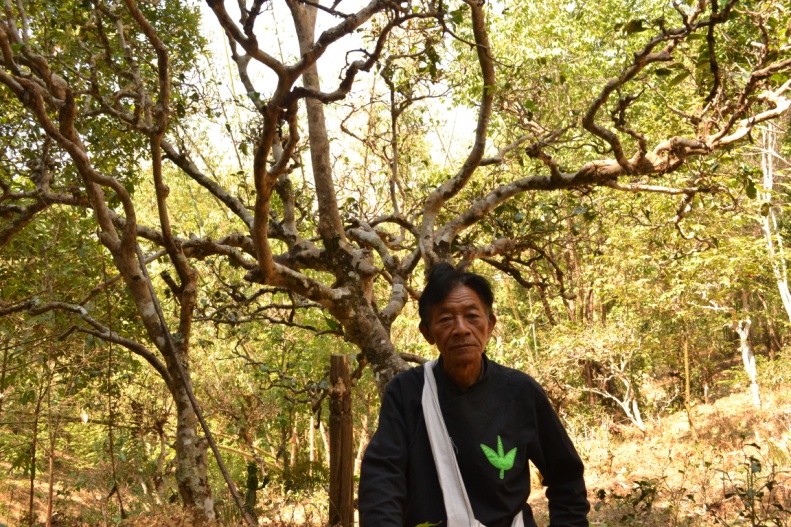A fitting tribute to the birthplace of tea
- By Corey Cooper
 0 Comment(s)
0 Comment(s) Print
Print E-mail China.org.cn, April 25, 2012
E-mail China.org.cn, April 25, 2012
In a discussion with several tea industry experts near his home in Mangjing, Su said he reinstated the practice to protect Mangjing's sacred tea mountain from the practice of cutting down ancient tea forests in favor of modern-style terrace farming. Much more tea can be harvested from plantations than from the ancient tree forests, but tea brewed from plantation leaves lacks the complexity of ancient tree tea, which benefits from the biodiversity of the forest.
Each year, the tea harvested from spirit trees is taken to the temple in Mangjing and offered to the ancestral princess and prince of tea, Nan Fa and Ai Leng, for blessing. After receiving the blessing, the tea is collected and processed, and sold at a high price (this year the tea fetched 699 yuan per kilo). The money collected from the sale of the holy tea is distributed to villagers to help them when their cash flow is tight during the lean winter months preceding the spring harvest.
Although domestic demand for pu'er tea has been strong in the past few years, with prices for top quality pu'er ranging from 300 to 3,000 yuan per kilo, drought has crippled this year's Spring Harvest in Mangjing, with volume of raw tea leaf material falling to nearly half of normal levels. In pu'er tea production, Spring tea, with its cooler growing temperature, typically produces more refined tea compared to the Autumn harvest, and is highly sought after by tea merchants. But limited production capacity this Spring means that Mangjing's economy will take a serious hit; and with few other sources of income, tea remains critical to the economic and social well-being of the village.
Tea master salutes Blang on behalf of the world
This year in Mangjing, immediately following Prince Su's New Year indoctrination, a visitor from afar took the stage. Soren Michael Christian Bisgaard, a Danish master of tea who has resided in Kyoto, Japan for the past 35 years, gave a ceremonial offering of tea to the Spirit of Tea.






